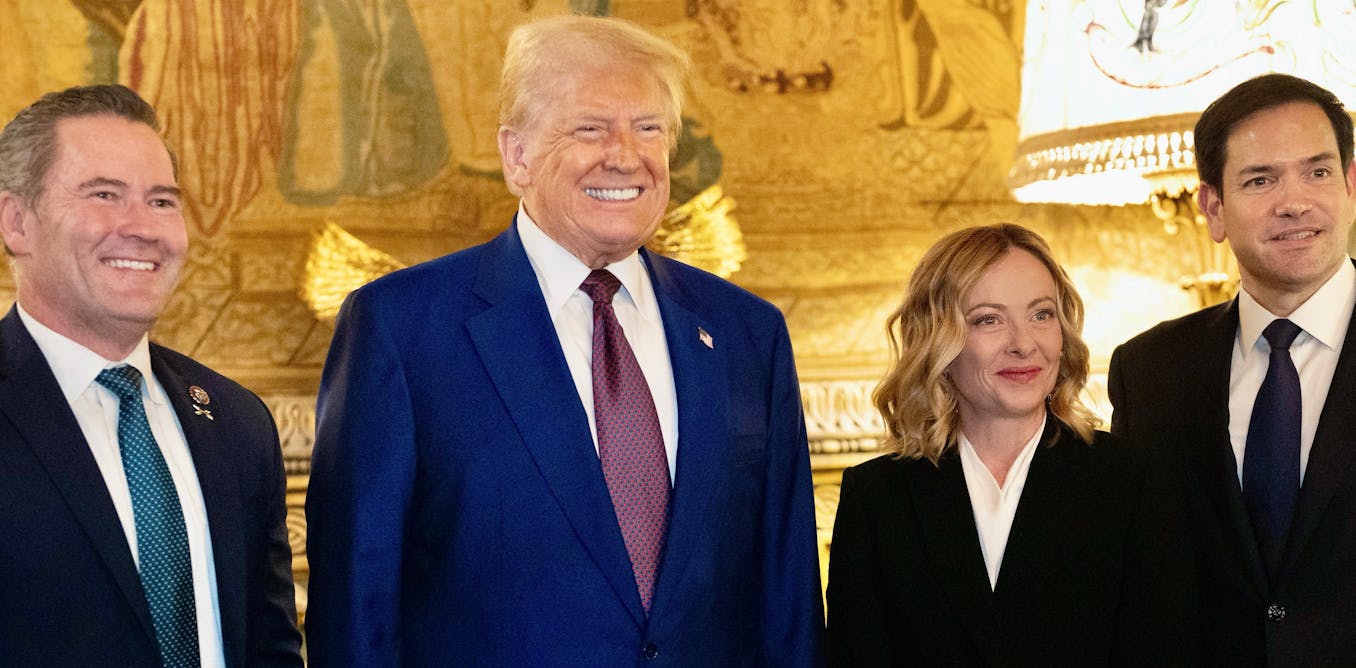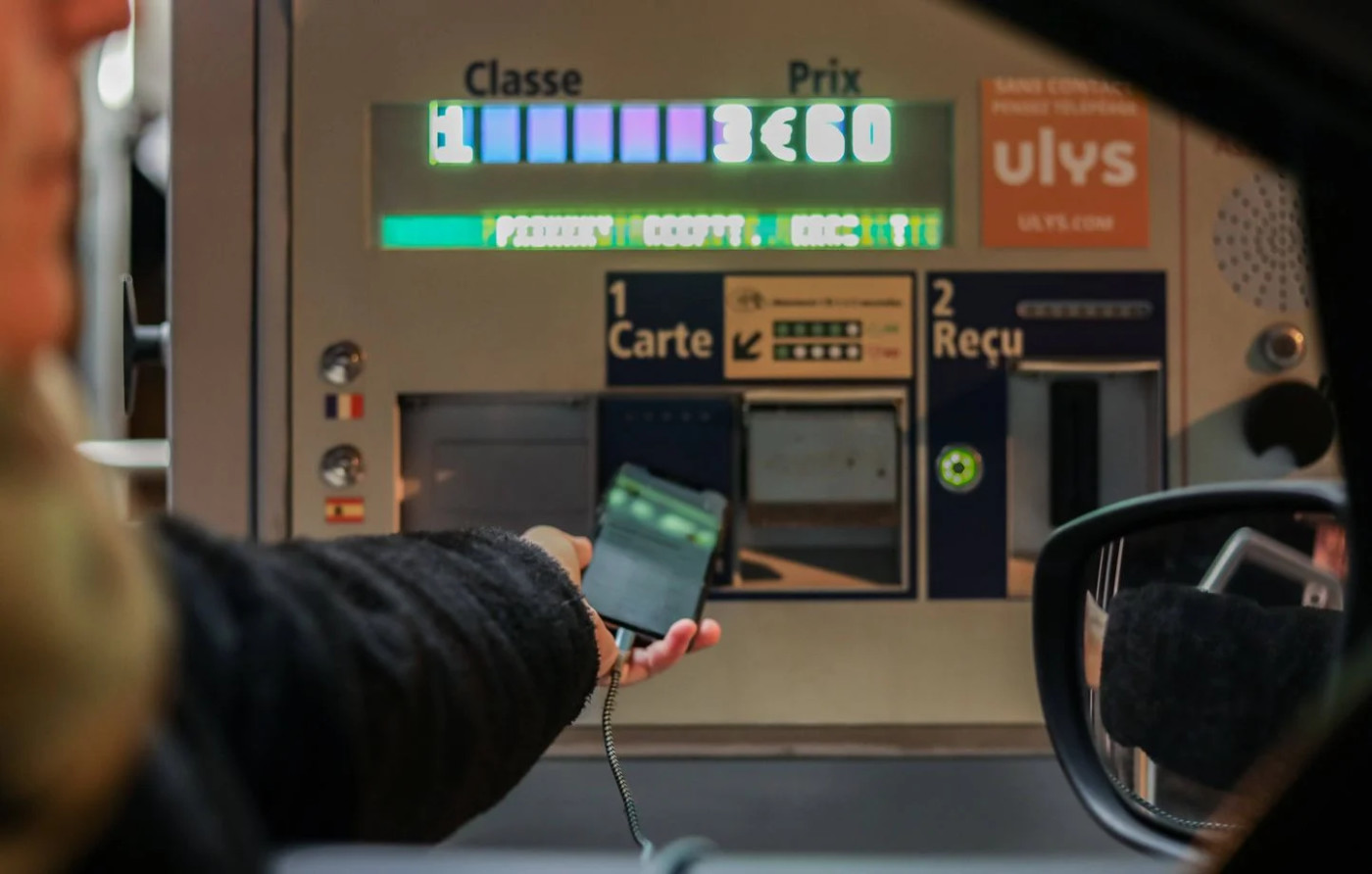Between Trumpism and the EU: Giorgia Meloni and the path ahead for Italy
Giorgia Meloni’s presence at Donald Trump’s inauguration aimed to reinforce her status as a privileged interlocutor of the new US administration. But this position carries risks for Italy and the EU.

Giorgia Meloni was the only leader of a European Union government at the second inauguration of Donald Trump. The Meloni government’s relationship with the Trump presidency appears to be a crucial issue, both at the Italian and European level. The question is whether, yielding to Trump’s siren calls, the government may be tempted to go it alone in order to benefit from a privileged trade regime with the United States, or if Italy is seeking to act as a link between Brussels and Washington within the EU framework.
This rapprochement seems to obey different logics. It’s worth recalling that, since the Christian Democrats backed the US at the end of the Second World War, transatlantic relations have been one of the pillars of government in Italy. Indeed, the relationship between Meloni and former US president Joe Biden was described as “very good”. However, in the Italian political panorama, the “America first” path embodied by Trump has sometimes represented a model. Matteo Salvini’s far-right League party has always shown its appreciation of the Trumpian design. During the Republican’s first presidency, it was premier Giuseppe Conte, a member of the populist Five Star movement, who emerged as Trump’s privileged counterpart in Italy. Until Trump’s re-election, Giorgia Meloni’s position was cautious. A member of her party attended the Republican National Convention in Milwaukee last July, but not as a signal of commitment from all its members.
The outcome of the US elections changed the situation. Italy, like other EU members, is concerned about the possible introduction of tariffs that could harm exports to the US. For Rome, maintaining a trade surplus is a political and economic priority. Secondly, the nationalist Meloni wants to appear capable of establishing a privileged dialogue with Trump, which could be an advantage in Europe amid the weakness of the Olaf Scholz chancellery in Germany and the Emmanuel Macron presidency in France.
Italy-US relations have also intensified amid two more recent situations. Following the imprisonment of Italian journalist Cecilia Sala in Iran on December 19, the Italian government worked to secure her release, which was obtained in exchange for a promise to free Mohammad Abedini, an Iranian national who had been arrested in Italy following a warrant issued by the US. Meloni’s whirlwind visit to Trump’s Mar-a-Lago resort on January 4 helped secure the incoming administration’s understanding of the case. Her success shows she was able to establish a direct channel with Trump.
On the other hand, since December, there has been debate in Italy about a potential public service contract with Starlink, the satellite network created by billionaire Trump supporter Elon Musk. Last autumn, the government raised the possibility of using Starlink to compensate for weaknesses in the connectivity component of its infrastructure plan. There was discussion of extending this connection to public users in emergency situations, such as the armed forces and the diplomatic network, with feasibility studies under way.
However, this provoked an outcry. Musk’s recent stances toward various European leaders have been perceived within the Union as a form of interference, given the US tycoon’s ability to amplify influence through his social platform X. In Italy’s parliament, opposition members voiced strong criticism of an initiative which, even if technically and operationally sound, could introduce a form of control by Musk’s company, and therefore the US administration, over data considered sensitive and sovereign. Moreover, the issue of technological sovereignty comes at a time when Italy’s national industry, led by the Leonardo Group, is involved in the EU Governmental Satellite Communications (GOVSATCOM) and IRIS2 satellite constellation programmes.
Meloni had already developed a relationship seen as cordial with Musk, who was invited to Atreju, a youth event for her Brothers of Italy party, in late 2023. But amid alarm among parties including Italy’s defence community and its presidency, there has been an increasing politicization of the potential Starlink contract.
The issue may become a turning point in relations between the Meloni government and the second Trump administration. On the one hand, there is an aspect of federalism within the European Union, which has a body of legislation, notably the Digital Service Act, that applies to global platforms it intends to regulate. On the other, some in Italy, as elsewhere, may be tempted by rightward turn of big tech that preceded Trump’s second term, with a vision of economic development unhindered by regulation.
We therefore have a paradoxical position from the Italian government: the resolution of the Cecilia Sala affair sanctions the establishment of a good diplomatic channel with Trump and his teams, while the brake put on the Starlink contract signals questions around tech sovereignty. Rome must further examine national and European implications before playing a transatlantic game.
Italy is firmly anchored within the EU, a position in which Meloni has hitherto shown remarkable orthodoxy by, for example, displaying impeccable support for Ukraine in the face of Russian aggression. Any calculation that favours a national path to the detriment of the bloc, motivated perhaps by thinking that Washington could be a kind of alternative to Brussels, would be entering a negative-sum game spiral whereas the essence of the EU is a positive-sum one.
The view of Trump in Europe, already highly divisive, could be further intensified if there are waves of arrests of illegal immigrants in the US. It may be useful for the prime minister to have her own capacity for dialogue with Washington, but only if it is also developed within a framework of pan-European mediation, in particular by maintaining close relations with France and Germany. Going it alone would not only isolate Rome in the medium term but also potentially weaken Europe.
In Italy, Meloni has succeeded in establishing a nationalist narrative without really calling into question its social democratic base. This can be seen, for example, in migration policy, where public opinion focused on the announcement of detention centres in Albania, but no more than two dozen migrants were sent there as of November 24. But Trump’s second term could help create a rightward slant in Italy. European partners would be well advised not to ostracize the Italian government in the current context, but to engage in dialogue amid their linked fates.![]()
Jean-Pierre Darnis ne travaille pas, ne conseille pas, ne possède pas de parts, ne reçoit pas de fonds d'une organisation qui pourrait tirer profit de cet article, et n'a déclaré aucune autre affiliation que son organisme de recherche.
Quelle est votre réaction ?






















![« Une période dorée pour le crédit » [Emmanuel Weyd, Eiffel]](https://www.greenunivers.com/wp-content/uploads/2025/01/image-41.png)



